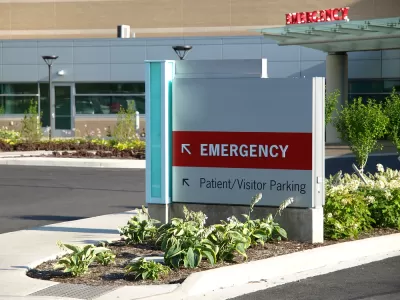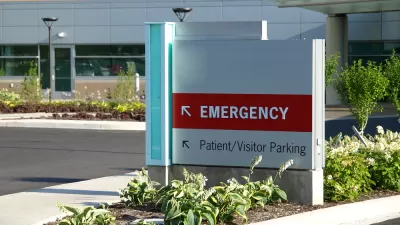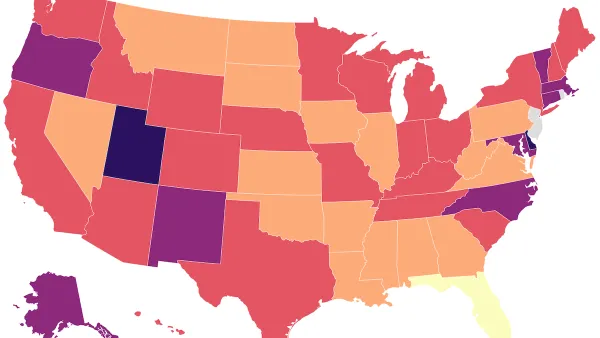Hospitals are uniquely suited to make an impact in the ongoing affordable housing crisis in the United States.

Tracey Walker shares news of an Urban Institute report from earlier this month that provides guidance for nonprofit hospitals and healthcare systems adopting a growing role in affordable housing investments.
Housing investment is relatively new for most hospitals and healthcare systems, according to Walker, but the survey operates from the assumption that "hospitals’ institutional assets, focus on health outcomes, and position as anchor institutions make them well-positioned to invest in affordable housing."
An article on the Urban Institute website by Martha Fedorowicz and Kathryn Reynolds published in April also credits policy changes initiative by the Affordable Care Act with some of the new housing initiatives by the healthcare industry.
Walker parses out the key findings of the survey results published in August in a list, including a list of three concrete ways hospitals and healthcare systems can support housing investments:
- Donating land or buildings or swapping land with a housing developer;
- Using their financial position to enhance credit or lowering borrowing costs, or provide a direct loan for construction, renovation, or rehabilitation costs; and
- Contributing staff time or capital to encourage others to invest in affordable housing development.
For more background and context for the survey, see also another Urban Institute article written by Mathew Eldridge, along with Fedorowicz and Reynolds, to supplement the release of the survey findings.
FULL STORY: How Can Hospitals Invest in Affordable Housing?

Planetizen Federal Action Tracker
A weekly monitor of how Trump’s orders and actions are impacting planners and planning in America.

Chicago’s Ghost Rails
Just beneath the surface of the modern city lie the remnants of its expansive early 20th-century streetcar system.

San Antonio and Austin are Fusing Into one Massive Megaregion
The region spanning the two central Texas cities is growing fast, posing challenges for local infrastructure and water supplies.

Since Zion's Shuttles Went Electric “The Smog is Gone”
Visitors to Zion National Park can enjoy the canyon via the nation’s first fully electric park shuttle system.

Trump Distributing DOT Safety Funds at 1/10 Rate of Biden
Funds for Safe Streets and other transportation safety and equity programs are being held up by administrative reviews and conflicts with the Trump administration’s priorities.

German Cities Subsidize Taxis for Women Amid Wave of Violence
Free or low-cost taxi rides can help women navigate cities more safely, but critics say the programs don't address the root causes of violence against women.
Urban Design for Planners 1: Software Tools
This six-course series explores essential urban design concepts using open source software and equips planners with the tools they need to participate fully in the urban design process.
Planning for Universal Design
Learn the tools for implementing Universal Design in planning regulations.
planning NEXT
Appalachian Highlands Housing Partners
Mpact (founded as Rail~Volution)
City of Camden Redevelopment Agency
City of Astoria
City of Portland
City of Laramie





























